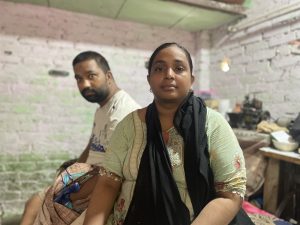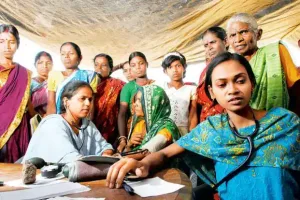Gujarat’s Rural Hospitals Become Support Centres For Domestic Violence Survivors
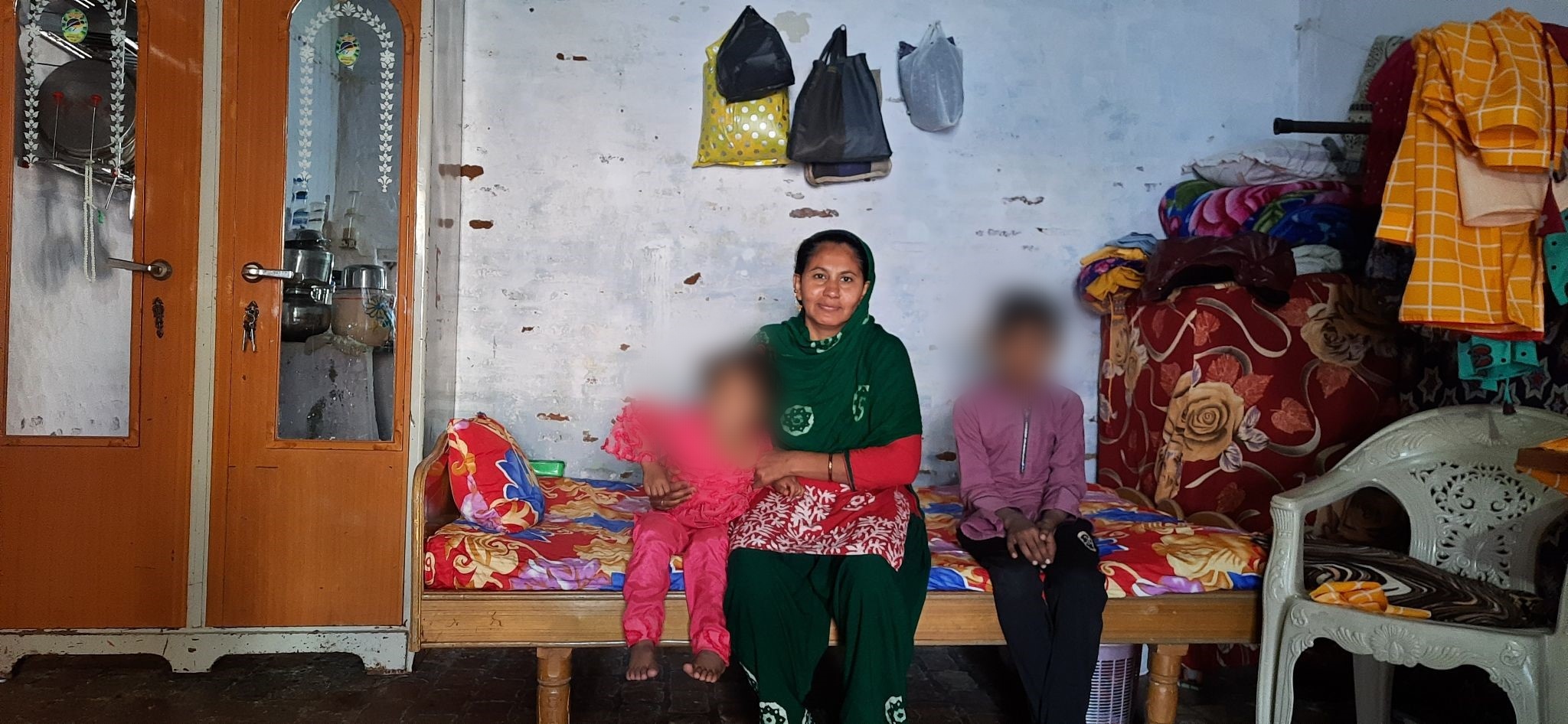
The excitement is palpable at the gathering of around 30 women, old and young, seated in a circle at the sub-district hospital in Patan district’s Radhanpura town. Among them is a deputy sarpanch, a farm labourer, a tailor, and a few stay-at-home mothers. There are smiles as the women greet each other and settle in.
The women are survivors of domestic violence who have been identified and supported by the Mahila Sahayata Kendra, a women’s assistance cell at the hospital. This is their third survivors meet since the pandemic and there is a lot to discuss. Jashoda Rana, the centre’s counsellor works for SWATI, a Gujarat-based non-profit focussed on women’s empowerment, and she exhorts the women to speak of their experience of domestic violence.
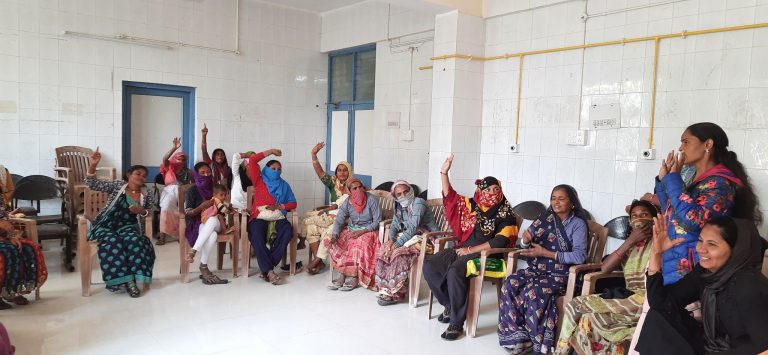
A survivor in a green salwar kameez with her infant son asleep in her lap, says she is at the end of her tether. She has returned to her mother’s home because her husband has been physically violent towards her and her children. But her son is ill and she is struggling to find the money for treatment. She has filed for the maintenance for her two children [under the Protection of Women from Domestic Violence Act, 2005] but the case has yet to be heard. She is so desperate for a solution she is contemplating returning to her husband but fears the consequences. “I will die by suicide, it is the only way that I can send him [husband] to jail,” she says breaking down.
The other women step in to comfort her, and Rana points out that the answer lies not in revenge but in becoming self-reliant. Madinaben, a 40-year-old, steps in with her own story of transformation which the assistance cell facilitated. She too had been depressed when she left her husband with no means to support herself and her children. “It has been four years now, I live on my own, I work as a tailor, earn and support myself and my children comfortably. I am glad I have left my husband,” she said.
In India, 29.3% (18-49 years) women have experienced physical, sexual or emotional spousal violence, according to National Family Health Survey-5. 24.2% women in urban areas and 31.6% in rural areas have reported experiencing spousal violence. Incidence of violence is more in rural areas where victims lack social support, mobility and information. The pandemic has exacerbated the crisis: reports estimate that the domestic violence rate went up 2.5 times in India during the lockdowns.
It has thus become critical for India’s rural health system to include a response to violence against women. Recognising the wideranging impact of gender-based violence on the sexual, physical and mental health of women, India’s National Health Policy 2017 asked for prioritised action to deal with it. It emphasised that women’s access to healthcare must be strengthened by making public hospitals gender-friendly with sensitised staff and that women should be guaranteed free healthcare services in public and private sectors with dignity.
In this, the first in our three-part series on domestic violence, we look at an effective model of public health intervention in cases of domestic violence in rural Gujarat. In the second and third parts, we will look at the role of the community health workforce in dealing with gender violence and why the state apparatus fails survivors.
Rural health centres are critical
As the first professional contact for survivors of intimate partner violence of sexual assault, health providers at public health facilities are most critical sites for addressing domestic violence. Women who have been subjected to violence seek healthcare more than other women though they do not always disclose the associated violence, says a World Health Organization report. They also identify health-care providers as the professionals they would most trust with disclosure of abuse.
The Mahila Sahayata Kendra is one such response where a crisis intervention and support cell is located right within the premises of a government hospital. The first cell was established in 2012 at the community health centre and referral hospital in Radhanpur as a joint initiative between SWATI and the Gujarat health department. About 80% of the district’s population lives in villages. The network of cells has now expanded to three in the district and together they receive up to 36 cases a month referred by the health system, ASHAs and others.
One by one, as the survivors at the Radhanpur cell spoke up, it became apparent why women stay on in abusive marital relationships in India – entrenched gender roles, familial and social pressures to hold a marriage together, fears of disrupting childrens’ lives, the insistence at police stations that they try and patch up, lack of awareness about options and financial insecurity.
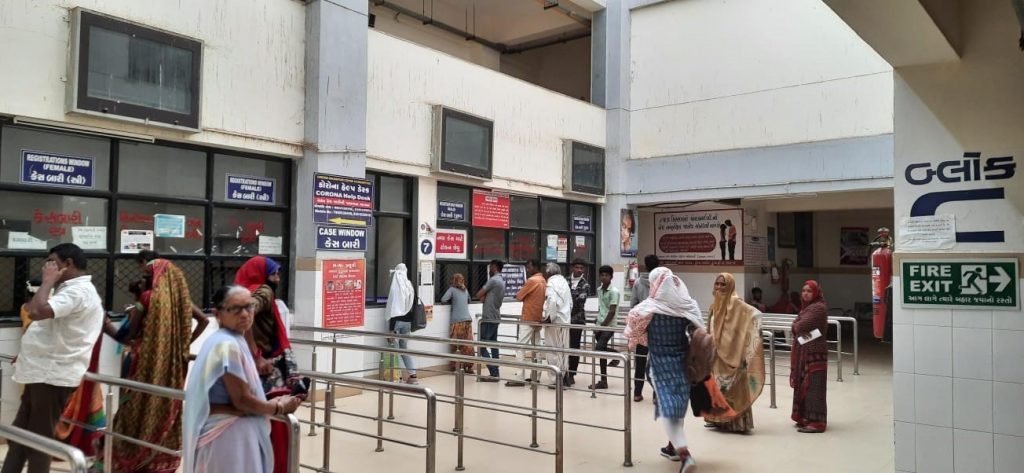
Identifying violence despite silence
The biggest challenge for initiatives such as this is the survivors’ reluctance to speak up, report abuse and seek help. Since the signs of violence may be unapparent, at the health facility where the cells are located, doctors, nursing staff, housekeeping staff, ayahs, laboratory assistants and even security staff are all trained to identify them among patients and refer them to the cell for further screening and counselling. This identification can be done during interactions with the staff or even when they are waiting to be admitted.
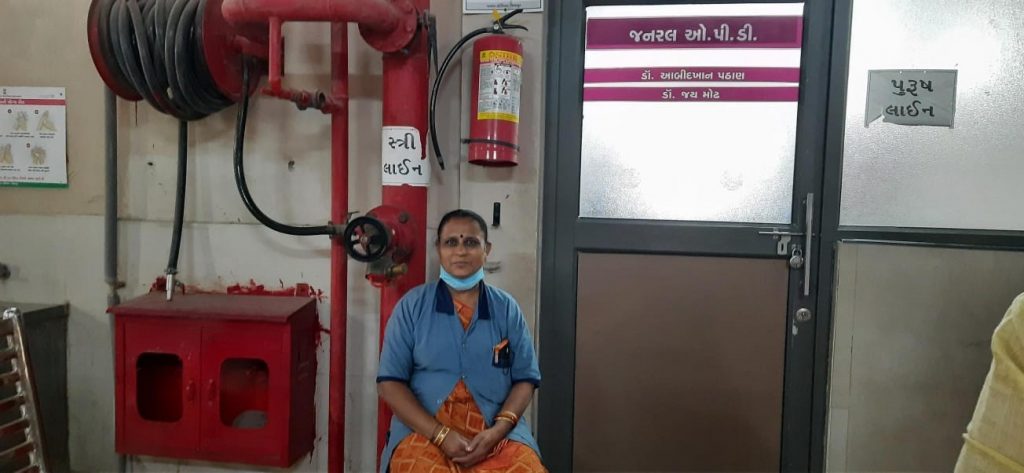
For instance, doctors in the emergency department are asked to probe injuries and attempts to consume poison; orthopaedics are told to ask about frequent fractures and dentists to monitor those who complain of repeated dental injuries.
Gynaecologists have to observe women who land up with multiple pregnancies because they are being coerced to produce a male child or those who are anaemic because of neglect or complain of white discharge. The last is often caused by vitamin deficiency leading to an infection, poor personal hygiene or psychological stress, all of which point to domestic violence of some kind, be it physical, emotional, psychological or even financial, said Jay Modh, the chief medical officer at the General Hospital in Sidhpur which has an assistance cell.
Psychiatrists are told to refer female patients with depression, suicidal tendencies who complain of domestic issues.
Since ayahs or attendants spend a lot of time with female patients, they are asked to refer to patients who complain about domestic violence or generally seem distressed. Surekhaben, security guard outside the OPD at the General Hospital in Sidhpur, says she often identifies victims of domestic abuse by just observing them in the OPD. “If we see someone who looks disturbed, we ask them what the matter is. If they tell us that they have a conflict at home, we send them to room 22 [where the kendra is],” she said.
Reluctance to report
Assistant counsellor Shardaben in Dharpur’s 800-bed Gujarat Medical Education and Research Society (GMERS) hospital and medical college, also visits each ward personally to remind the staff to refer patients and to find patients who may need help. “If I see a female patient crying or hassled I get her to the centre for counselling,” she said.
Most women tend not to report domestic abuse, said Raj Solanki, medical officer at the Siddhpur hospital. “Those who come to seek help do so for depression or anaemia that sets in 3-4 years after abuse begins,” he said.
There is evidence to show that this approach of addressing domestic violence in the public health system is working. Between January 2016 and June 2018, the three cells registered 652 cases. Referrals from the health system accounted for 35% of these cases, indicating the programme’s effectiveness, showed an internal study by SWATI which BehanBox was allowed to access. The study also found that the duration of the second episode of violence is shorter for women who have been counselled.
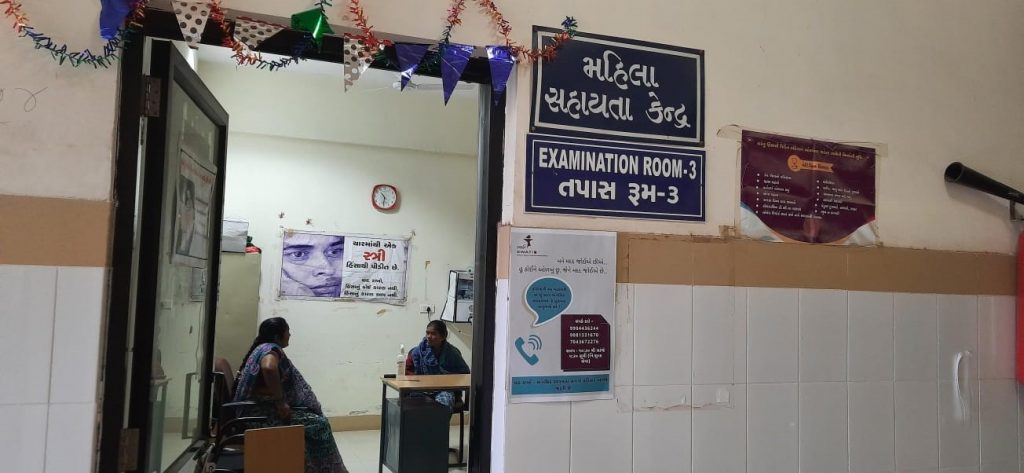
Each of the kendras has a counsellor and an assistant counsellor to assist the survivor. Women are informed about their options on dealing with the violence and counselled on how to build self-esteem and confidence. “We help the women in whatever way she wants to move forward – separation, a police complaint or mediation,” said Pragya Chauhan, counsellor at the Dharpur centre. Most women are not aware of their options, she said, pointing out that domestic violence is repetitive unless dealt with.
What most survivors fear is that they will be left homeless if they leave their husbands so the counselling team tells them about the Protection of Women from Domestic Violence Act (PWDVA), 2005, which ensures legal protection for the complainant and also entitles her to economic relief and compensation during the period of separation. The act recognises all forms of abuse- emotional, sexual and financial.
Police reluctance to file FIR
The other common law applied in the case of domestic violence is section 498A of IPC that provides prosecution and punishment to husband or his relatives who commit cruelty on the woman. But the police are reluctant to file a First Information Report (FIR) based on a domestic violence survivor’s testimony and often counsel the woman to do so only if they are ready for divorce or meddle with the dispute in other ways, said activists. We will be elaborating on this issue in the third part of the series.
“They [police] believe that if FIR is filed, the woman will not be taken into her marital home and that it will lead to divorce,” said Rana, the counsellor at the Radhanpur cell. “It usually takes a woman a lot of courage to reach the police station and once there, she is sent back. Often, they call the in-laws or community leaders and pressure the woman to not file the FIR.”
Counsellors like Rana need to then persuade the police to record the complaint and file an FIR and reassure the survivor that an FIR does not necessarily end in a divorce. They also forewarn her of common police responses so she can think through her decisions.
The centres also allow for and set up mediation sessions between a couple. “Mediation works when both the parties talk freely, problems can be resolved,” said Chauhan, the counsellor at Dharpur. If a woman wants to return to her marital home, the husband is asked to declare on a stamp paper that he would not abuse her again. Women are also advised to resume the legal case if they are abused again.
Madinaben’s story
A critical aspect of the counselling is the discussions around self reliance. What sort of skills does the woman have which can be put to commercial use? Cooking, stitching, farm work, construction work, beauty parlour skills and so on. “Usually when a woman is married [in rural areas], her in-laws do not allow her to work outside. So she loses her confidence. We try to motivate her to start work again,” said Rana.
It was this counselling that helped Madinaben find her feet.
She had been beaten by her mother-in-law for asking for clothes for her infant son and had arrived at the hospital for treatment. Since it was a case of domestic violence, a medico-legal case (when the examining doctor feels further investigation is needed by law enforcing agencies) was filed and she was referred to the kendra for counselling.
After she filed a case of maintenance, the court mandated that she be paid Rs. 2500 a month but after one and half years, her husband convinced her to return to him and withdraw the case. There was peace for a few months and then Madinaben became pregnant again. Her husband, mother-in-law and sister-in-law started beating her and threatening her with a second wife. This time, she returned to the sub-district hospital at Radhanpur and filed a case against her husband.
Madinaben asked for a one time settlement of Rs 5 lakh and the custody of her children. Community leaders did step into the negotiations to insist that she surrender her son and take home her daughter but she refused. The final settlement allowed her the custody of the children and an alimony of Rs. 2.5 lakh.
With that money, the resourceful Madinaben bought a plot of land, leased her house, invested in her uncle’s fruit business and bought a sewing machine. “Women should make something of their lives, let him (husband) remarry. We should live a full life,” she says.
What if a woman opts to patch up with her husband despite the violence? In such cases, survivors are counselled on identifying a support network of friends, family or neighbours. A safety plan is also created with tips on how to prevent or reduce the impact of violence – making a noise to alert neighbours, escaping at the earliest opportunity and keeping sharp objects out of the assaulter’s reach for example. Women are also advised to call 181, Gujarat’s women’s helpline.
This reportage is part of the SWATI and BehanBox fellowship on rural health sector response to gender based violence in Gujarat.
We believe everyone deserves equal access to accurate news. Support from our readers enables us to keep our journalism open and free for everyone, all over the world.

